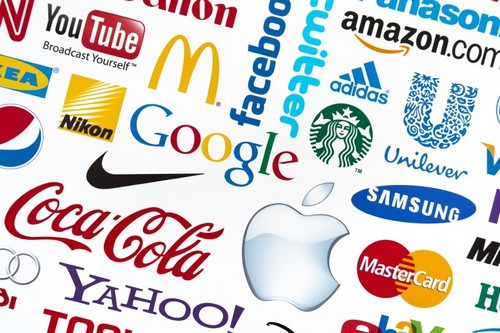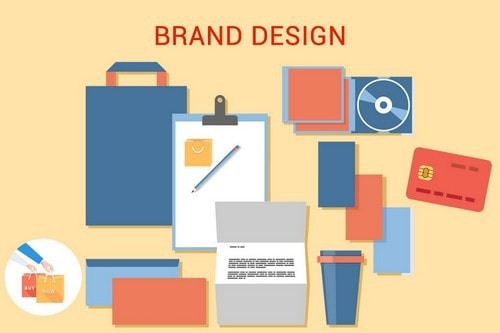Design and branding
Design can be defined as one of the crucial marketing practices of creating the name, logo, design, and the symbolic elements related to the brand to create a distinctive identity in comparison to the other brands in the market and also providing impetus to the product differentiation.
It is one of the first and foremost practices of the branding process and holds quite an important value as a part of the overall branding strategy of the company as it gives a major edge in the competitive market. The Brand Design has to be exclusive in nature and all the below mentioned design components need to have the expression of unison and oneness:
- Logo
- Tagline
- E-mail Signature
- Uniform for the staff
- Business Card
- Website
- Social media pages
- Marketing collaterals such as brochures and leaflets
- Hoardings and Billboards
- Packaging
- And design templates amongst others
Attributes of Brand Design
It needs to start from the scratch involving all the key members of the management and marketing department formulating a think-tank team who are involved in every minute detailing and happening of the same.
Working as one of the substantial brand strategies, it is vital to integrate its framework and characteristics in every facet of the business along with the marketing and promotional material.
The professional and talented design agency needs to be onboard to design the brand in a successful manner encompassing of the logo, tagline, templates, design expression, and the overall strategy or the company needs to hire an in-house team of designers who are well acquainted with the work process involved back by the related experience and knowledge.
There is a lot of brainstorming and research involved on the part of design team, branding or marketing department, and the key members of management involved as the finalized creative’s and designs become the face and expression of the firm.
The overall Brand Design needs to be well aligned and complement the brand values, objectives, ethos, and fundamentals of the company and should communicate the same carving a distinctive corporate identity of the firm.
If the managers or key members of the company feel that the current Brand Design and strategy is not suiting as per the market dynamics and environment, the company can undergo a rebranding exercise by changing and developing the design completely or undertaking the corrective measures suiting the present scenario.
The selection of color palette, typography, message, story, and the design strategy, on the whole, should complement the personality of the business and its offerings. For instance, if the product offerings by the firm are niche and are targeted to Sec A and A+, then the design strategy has to be in accordance to the target market to have an emotional connect with the audience and attain the objective of success and recognition.
Brand Design is just not confined to a catchy logo with the tagline and well designed stationary items, but it also comprises of every expression of the brand with the way the management and the employees handle the customers and deal with the external parties and stakeholders meeting and exceeding their expectations towards the brand.
As mentioned earlier, Brand Design works as one of the central aspects of the overall branding strategy as having a correct and rational approach towards the same results in many benefits for the company.
Importance of Brand Design
1. Competitive Advantage

Having a unique and aesthetically designed brand followed by the attractive strategies definitely makes the company command a distinctive position in the market amidst the tough competition. The edge of a catchy logo, tagline, play of color schemes, and more gives the brand a competitive advantage.
2. Lasting Impression
When the Brand Design and the related strategies are well planned and are presented in an aesthetic manner to the market, there is an instant registration of the brand in the minds of the consumers creating a lasting impression that results in the very good recall factor. Hence, it is always necessary to take care of every minute detail during the entire process of branding.
3. Generates Referrals
It is the thumb rule of the marketing that, ‘The customer is best brand ambassador’ and it is always essential to keep him at the focal point whilst designing the brand and planning process as once the customer is happy and satisfied he or she will definitely refer the brand to the friends and family resulting in more potential and quality leads for the business.
4. Talks about the Business DNA
As mentioned earlier, the Brand Design has to be in tandem with the goals, ethics, values, and objectives of the company and the design elements and language should reflect the same. And once this aim is achieved, the personality, nature, and the DNA of the business are communicated in a very professional manner to the consumers.
5. Emotional Connect
It connects with the consumers on the emotional level creating an instant space in their minds and hearts with the positive perspective towards the brand and its offerings.
6. Intangible Asset
Companies can reach the highest pinnacle of success and can also shut down any moment plus the profits and losses are the part and parcel of the business, but it is the brand that is stable and constant in nature as an intangible asset of the organization. It offers long-term benefits to the management and business.
7. Brand Recognition

A good Brand Design gets registered in minds of the consumers from the very first visual creating a lasting impact. The brand gets recognized with the color scheme, fonts, logo design, creative’s, and other expressions.
8. Sets Expectations
Once the consumers are well aware of the brand and its offerings having a positive outlook in their minds, the expectation is set from the brand and they look forward to the next set of offerings thereby creating a stable and fruitful relationship with the company.
Brand Design is the first step to getting the brand introduced to the market and holds a key status in the entire framework of branding and marketing.
The process of Brand Design

Brand Design is a two-way process with the client side and agency side involved equally sharing the responsibilities to get the required results that are beneficial for the company. The agency has to ask questions and clear all the queries that arise at the start and during the design process, define the creative problems, and visualize and come up with the solutions.
Brand and marketing managers of the company, on the other hand, has to provide all the requested information to the agency in the clear, timely, and honest manner. Both the parties have to work in a cohesive manner and brainstorm the ideas for the Brand Design.
1. Structure of the entire process
The framework of the entire design process needs to be structured in an organized method with the company giving the design brief to the agency and the agency chalking out the entire plan and timeframe of presenting the deliverables such as logo, tagline, business card, corporate correspondence documents, and creative’s of brochures, leaflets, hoardings, and billboards amongst others by optimally utilizing the resources and budget provided by the company.
2. Competitive Research
Before initiating the design process, it is important to conduct the primary and secondary research of the competitive brands in the market and understand their design ideologies, approach, and the strategy to have an edge over them when the Brand Design is presented and communicated to the market and consumers.
3. The harness on the creativity
There are many brands in the market but very few are able to have an impact on their designs and the rest fail due to the lack of creativity. Hence, the agency needs to come up with out-of-the-box ideas, groundbreaking strategies, and the novel design concepts to impress the management of the company along with the target audience.
4. Understand the business goals and brand personality
As mentioned earlier that the Brand Design should complement the goals and values of the company and hence it is essential to understand the nature of the business, vision, mission, and the overall personality of the brand.
5. Words before the visual images
It is important for an agency to understand to brainstorm and come up with the tone of voice, language, and the play of words before starting with the designing process as the content is always the king and leads the way forward for the logo, typography, mascot, and the designing of other creative’s.
6. Style Guidelines
Once the entire Brand Design is in place followed by the required approvals and formats required, the agency has to present and brief upon the style guidelines to the company representatives on the logo usage rules, layout guidelines, design templates, colour palette, the system of the typeface, and other related in-depth rules. It exists so that others can create marketing collaterals having a cohesive look and tone.
Conclusion
Brand Design is one of the most crucial facets of the overall branding process and its strategic features make the company carve a distinctive identity in the marketplace having an emotional connection with the target audience.
During the process of Brand Design, it is necessary to channelize the time, energy, focus, and creativity in the proper direction to get the desired result matching the particular needs of the specific project


